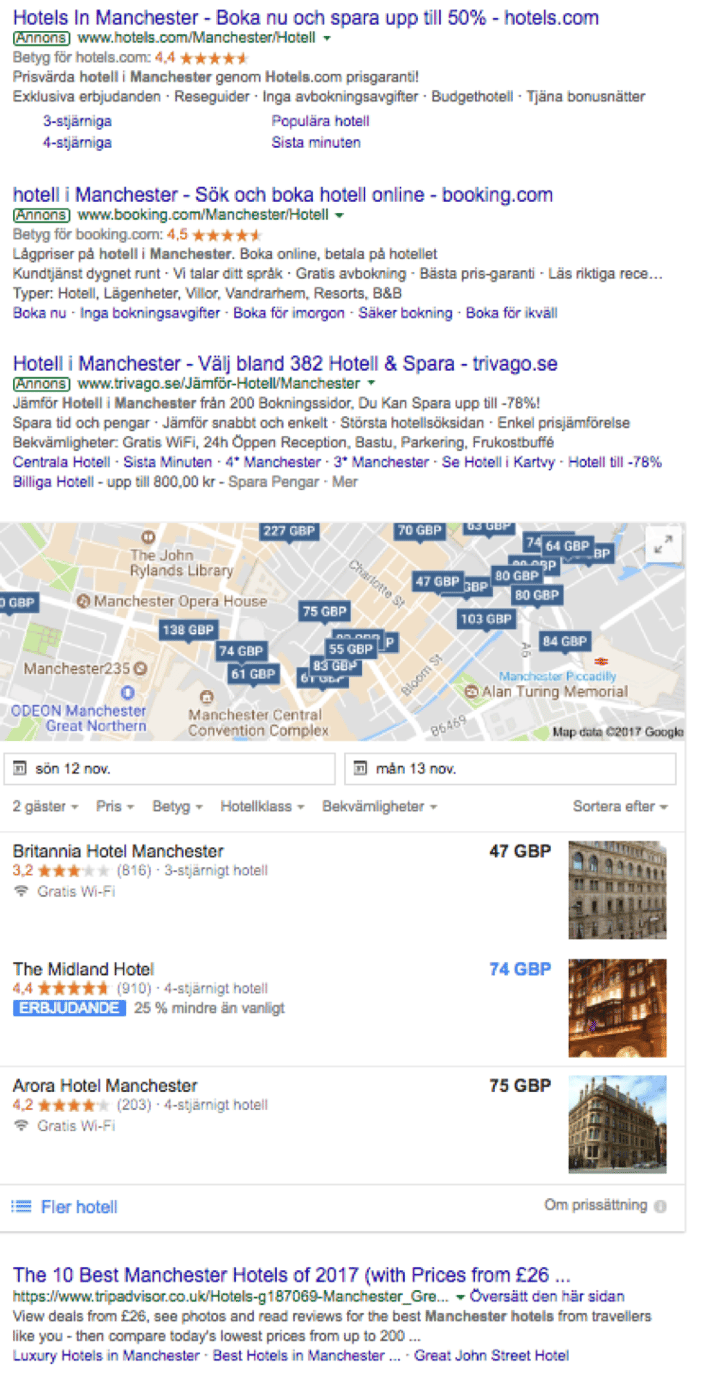Large e-commerce businesses usually have a number of digital providers. There might be one handling the technical side of things, one creating the design, another working with paid traffic and another in charge of optimizing the website for organic search. And there are usually more: PR agencies, conversion specialists, content bureaus, social experts and, well, the list goes on.
These different providers often work independently with their own goals and KPIs. And they like to keep it that way. They want to focus on their area, not particularly interested in cooperating with people who look at the website from another angle. If someone works with, say, social marketing – social marketing is probably considered the main key to success.
As a business owner, you should put your foot down and encourage that these different providers work together towards mutual goals. This will make you get more bang for the buck.
As an example, let’s look at your SEO and SEM providers and why you should push them to sit in the same room and align their agendas.
1. Strong Pages Make for Cheaper SEM
In SEO, you want to create pages that are relevant for certain keyword groups. A page should investigate a topic thoroughly, answer people’s questions and be as comprehensive as possible. The better information you provide your users with, the better chance you have to rank well in search engines.
But the page authority also affects paid traffic. How relevant a page is in regards to the keywords you buy impacts how much you have to pay for the click. Simply put, the more relevant a page is, the cheaper your SEM campaign becomes.
If you ensure meta titles, headlines and content match the searches, you will see better ROI on the paid traffic. And if you can be the most authoritative source on the topic, even better.
By putting your SEO and SEM team in the same room, they can together decide which pages to focus on the next period to improve results for both organic and paid sources as a joint effort.
2. Share Keyword Research
Traditionally, SEOs tend to base their decisions on search volumes. If keyword #1 has higher search volume than keyword #2, the first one is viewed as most important. People working with paid traffic, on the other hand, are often more results oriented. They compare what you pay for a click with how much you earn when someone clicks on an ad, lands on the website and possibly makes a purchase.
Both of these can be valuable. SEO can bring in “free” traffic on words that are not immediately converted into sales but builds brand recognition and allows you to build a relation with the visitor. Something that is viewed as a losing proposition for SEM agencies.
However, when SEOs and SEMs work together, they can group the keywords in immediate money makers and words that trigger behaviors earlier in the conversion funnel. In doing so, your SEOs might start focusing a bit more on keywords that generate business right away and SEMs can see the value in new types of traffic.
Could Paid Traffic Become Organic?
In some highly competitive areas you have to buy traffic even though you rank first in organic search for a keyword. Take the hotel industry as an example. In the search engine results, you’ll have a number of paid ads, possibly a map and other Google results before you even see the first organic result. In this case, it’s hard to rely solely on SEO. Just look at this search result for “hotels in Manchester”:

For more non-competitive searches and long-tail phrases, the search results may not be as littered with paid ads. And in that situation, you might want to abandon paying for ads for keywords you rank well for organically.
By sharing ranking reports and paid strategies, you can start spending the SEM-budget on keywords where you don’t “own” the traffic already.
Become a Digital Team – Not Digital Silos
This was just a couple of examples where you can gain momentum by working together. The task for you, operating an e-commerce website, is to map out your digital activities to see which people could benefit from sharing an agenda.
This won’t happen by itself. The design team rarely asks for input from the content writers and the technical department doesn’t actively seek input from search experts. This is up to you! Force them to sit together, and if they don’t want to share knowledge and cooperate, well, you need to look for other digital providers who are capable to have a holistic view on online success.
Topics:



